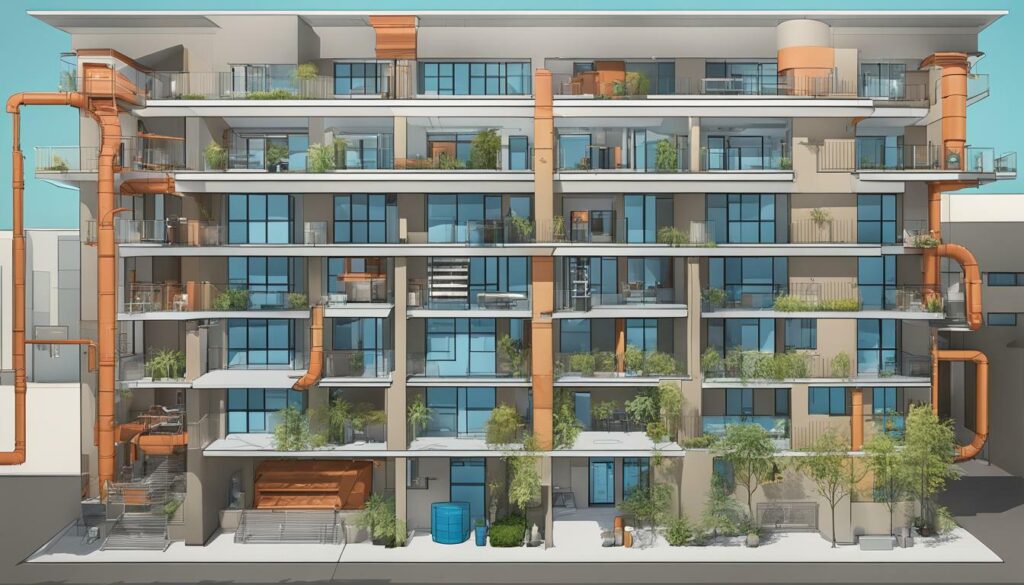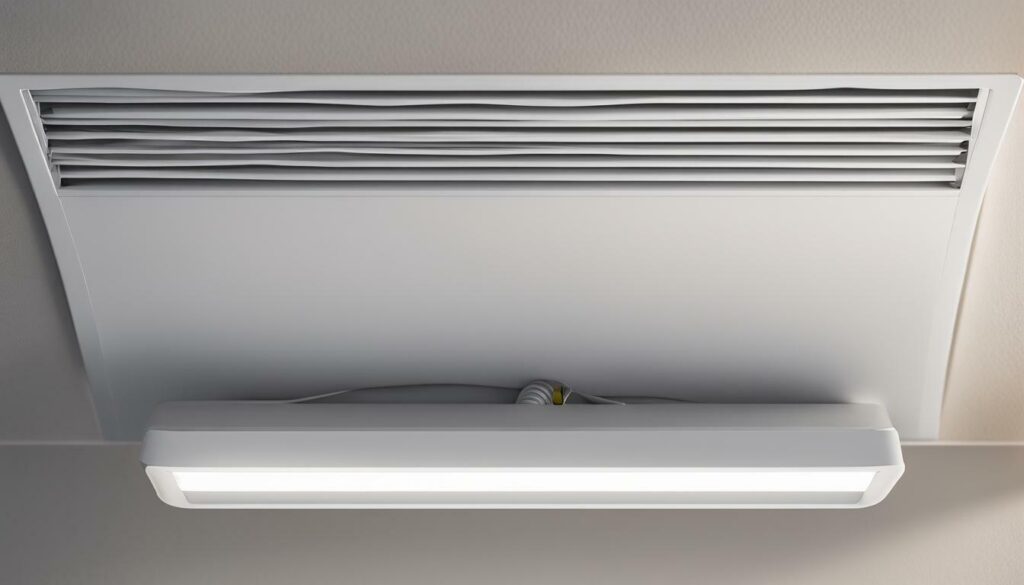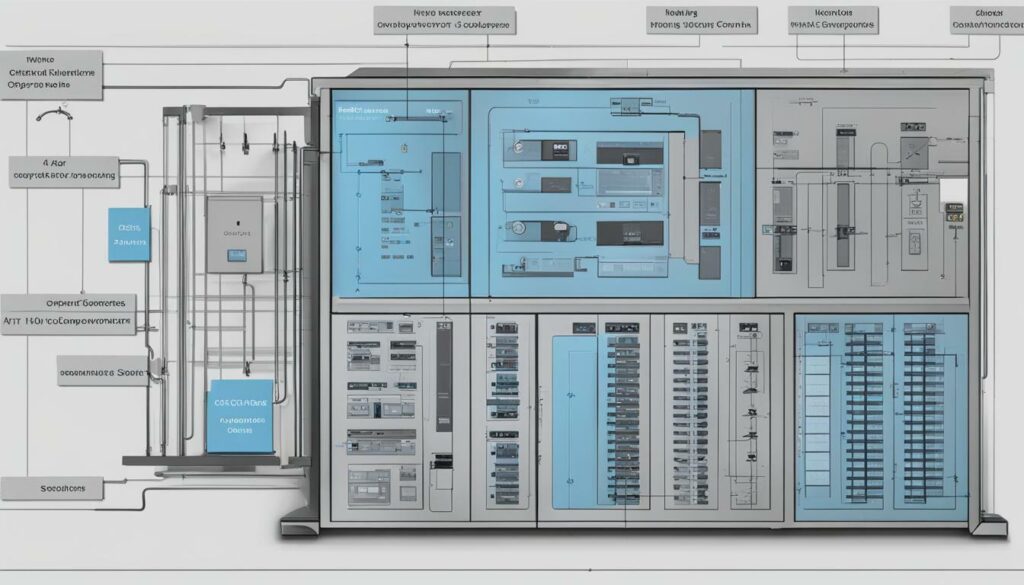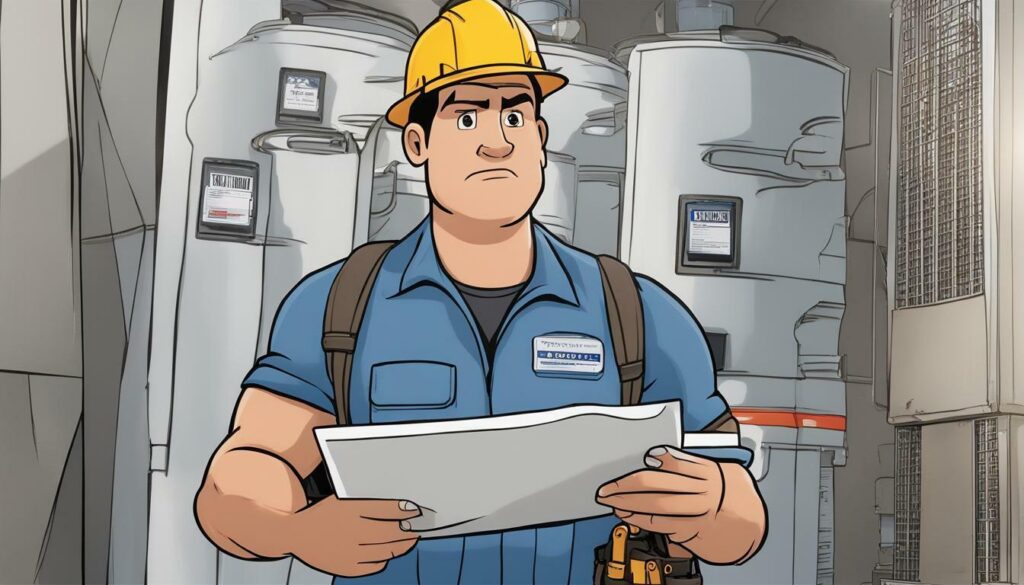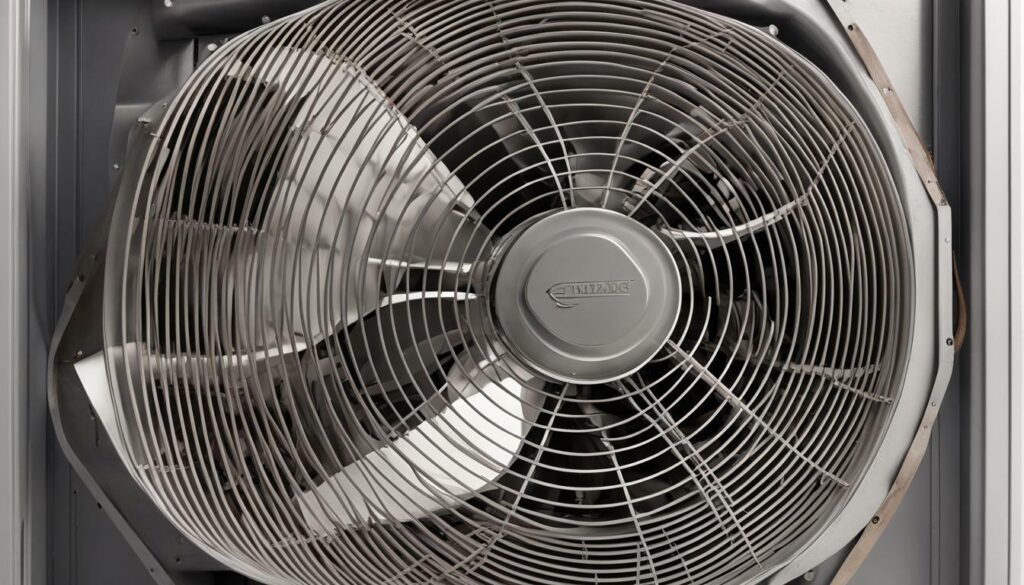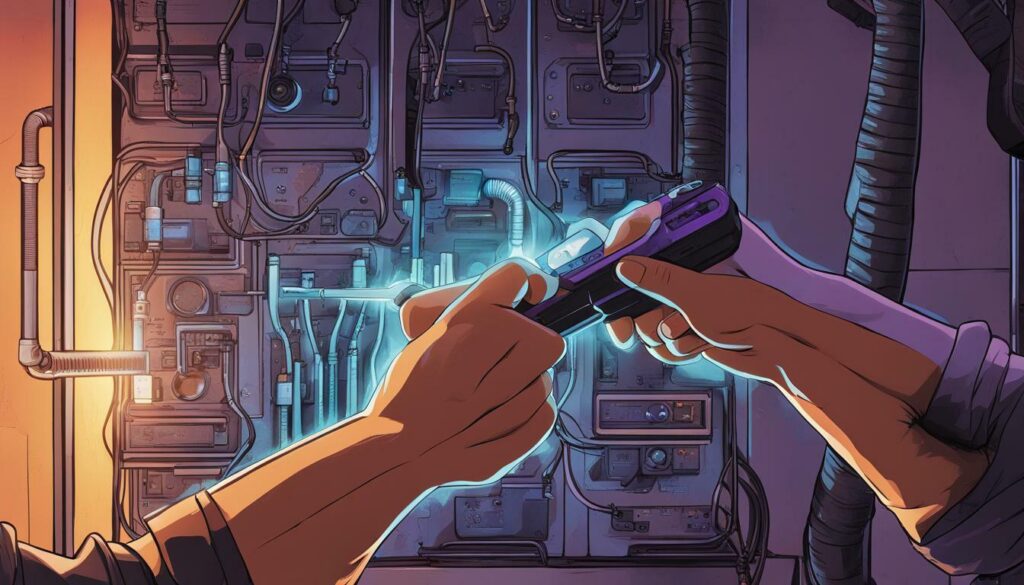Living in a condominium comes with many benefits, such as shared amenities, increased security, and communal living. However, it also means that certain responsibilities are divided among different parties. One of the most critical responsibilities is the maintenance and repair of the HVAC system in your unit. Understanding who is responsible for what can save you from a lot of stress and expenses. In this guide, we will provide you with everything you need to know about condo HVAC responsibilities and maintenance.
Key Takeaways
- Condo HVAC responsibilities are divided among different parties, including condo owners, homeowners associations (HOAs), and maintenance staff.
- Condo owners are usually responsible for maintaining and repairing the HVAC systems within their own units.
- HOAs are responsible for managing HVAC systems in shared areas and overseeing the maintenance and repairs.
- Regular HVAC maintenance is crucial for ensuring efficiency, prolonging the lifespan of your system, and preventing costly repairs.
Understanding Condo Ownership and Shared Areas
When it comes to HVAC responsibilities in condominiums, it’s important to understand the concept of condo ownership and how it affects the maintenance and repair of HVAC systems. In a condo building, each unit is individually owned, but there are also shared areas, such as hallways, elevators, and common spaces. These shared areas are usually maintained by the Condo Homeowner Association (HOA).
Condominium HVAC regulations and condo HVAC guidelines are in place to ensure that shared areas are properly maintained and to outline the responsibilities of individual unit owners. It’s important to understand these regulations and guidelines to avoid any confusion or conflicts regarding HVAC maintenance and repairs.
| Shared Areas | Responsibility |
|---|---|
| Hallways, elevators, and common spaces | Maintained by the HOA |
| Central HVAC systems | Maintained by the HOA |
| Individual HVAC systems within units | Maintained by individual unit owners |
Individual unit owners are responsible for maintaining and repairing the HVAC systems within their own units, including heating and cooling components. This includes regularly changing air filters and scheduling HVAC inspections and preventive maintenance. However, shared HVAC systems, such as central heating and cooling, are the responsibility of the HOA.
It’s important to communicate with your HOA and fellow condo owners to ensure that everyone understands their responsibilities for HVAC maintenance and repairs. By working together and following condominium HVAC regulations and condo HVAC guidelines, you can ensure that your condo building’s HVAC systems are properly maintained and provide comfort to all residents.
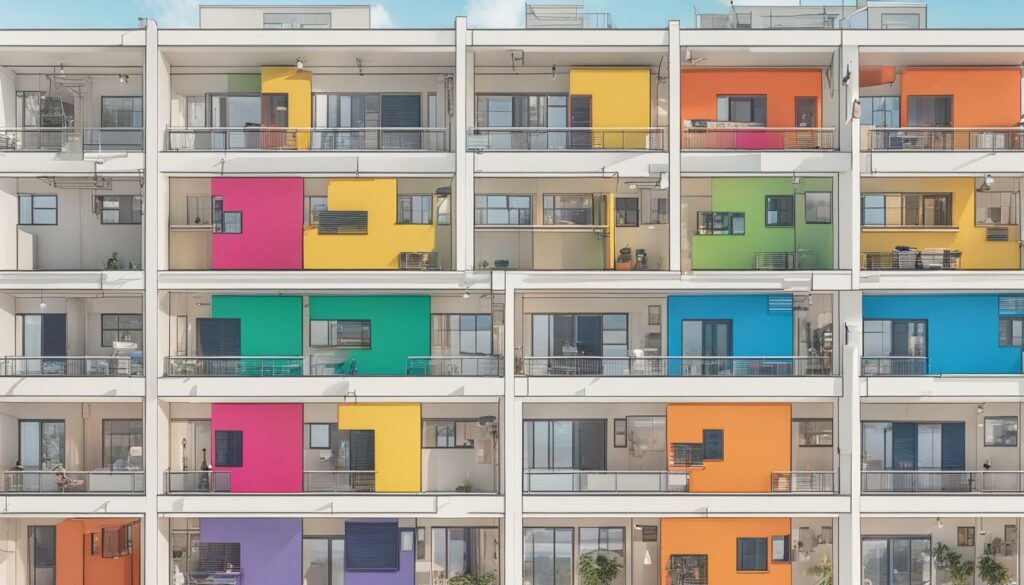

The Role of Condo Homeowner Associations (HOAs)
When it comes to managing HVAC systems in a condominium, the responsibility falls on the Condo Homeowner Association (HOA) to ensure that the shared areas are adequately maintained and repaired. The HOA is responsible for overseeing the maintenance of the HVAC system in shared areas such as hallways, lobbies, and other communal spaces. The HOA may also be responsible for managing any HVAC issues that arise in individual condo units.
Most condominiums have regulations and guidelines that govern how the HVAC systems should be managed. These guidelines usually require the HOA to hire licensed and qualified contractors to perform maintenance and repairs on the HVAC system. In some cases, the HOA may have a standard list of pre-approved contractors that they use for HVAC maintenance and repairs.
It’s important to note that responsibilities for HVAC maintenance and repair can vary depending on the condo community. Some condos may have central HVAC systems that serve multiple units, in which case the HOA would be responsible for managing the maintenance and repair of these shared systems. Other condos may have separate HVAC systems for each individual unit, in which case the unit owner would be responsible for maintaining and repairing their own HVAC system.
If you have questions about who is responsible for managing the HVAC system in your condo, it’s important to refer to the condominium regulations and guidelines or speak with the HOA directly. Proper management of HVAC systems can help ensure a comfortable living environment and improve energy efficiency.
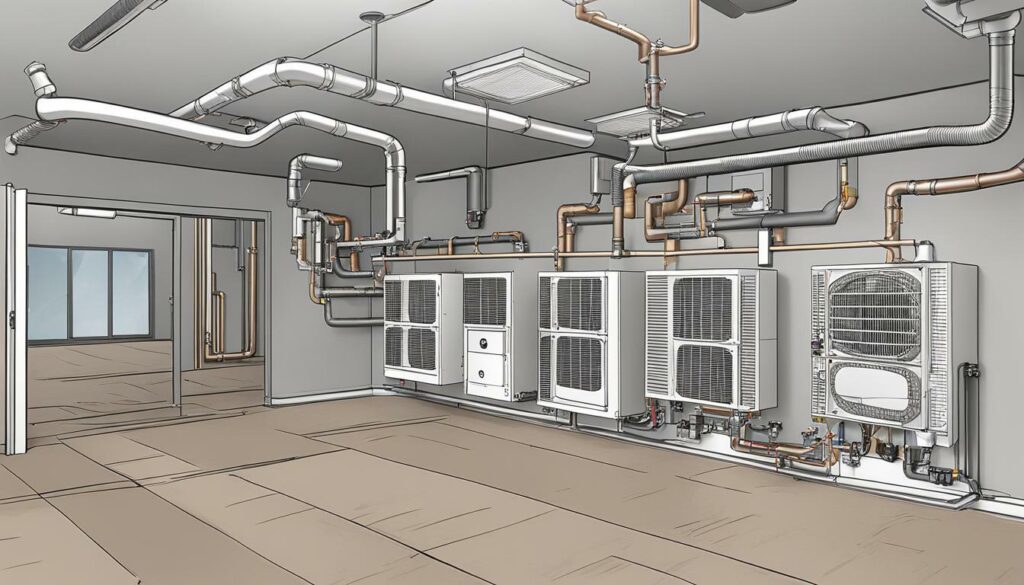

The Role of Condo Homeowner Associations (HOAs)
HVAC Responsibilities for Individual Condo Units
If you own a condominium unit, you are typically responsible for maintaining and repairing the HVAC system within your own unit. This means that if your unit has its own heating and cooling system, you are responsible for its upkeep. If your unit is connected to a central HVAC system, you are responsible for changing the air filters and maintaining the registers in your unit.
When it comes to condo heating and cooling, it’s important to keep up with regular maintenance to avoid potential issues down the road. This includes changing air filters regularly, cleaning the ductwork, and scheduling annual HVAC inspections. By doing so, you can prevent potential problems and ensure that your HVAC system runs smoothly.
If you do experience HVAC issues in your unit, such as a broken air conditioner or malfunctioning heater, it’s important to address the problem promptly. You may need to call in a professional for condo HVAC repair services. Be sure to find a reliable HVAC contractor who has experience working in condominium buildings.
Proper maintenance and prompt repairs can help you avoid costly repairs and replacements in the future. By taking care of your condo HVAC system, you can ensure a comfortable living environment for yourself and your neighbors.
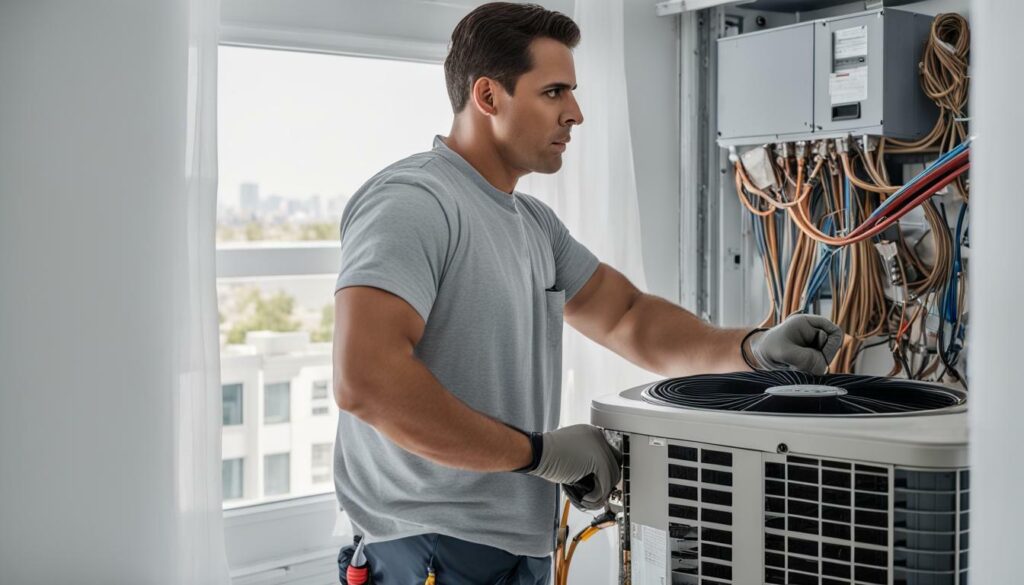

Remember, keeping up with HVAC responsibilities for your individual condo unit can help maintain a comfortable and healthy living environment for you and your neighbors.
Shared HVAC Systems in Condos
Some condo buildings have shared HVAC systems that serve multiple units. In these cases, the responsibility for HVAC maintenance and repairs is typically divided between the individual unit owners and the condo association.
According to condominium HVAC regulations, condo associations are responsible for maintaining the shared HVAC equipment, including the main HVAC unit and distribution systems. This includes conducting regular maintenance and repairs, as well as replacing equipment as necessary.
However, individual condo owners also have a responsibility to properly maintain the HVAC systems within their own units. This includes changing air filters regularly, ensuring proper ventilation, and reporting any issues to the condo association in a timely manner.
| Type of Responsibility | Party Responsible |
|---|---|
| Maintaining shared HVAC equipment | Condo association |
| Maintaining HVAC systems within individual units | Individual unit owners |
If you are experiencing problems with the shared HVAC system in your condo building, it is important to contact your condo association right away. Depending on the severity of the issue, they may need to bring in a professional HVAC contractor to make repairs.
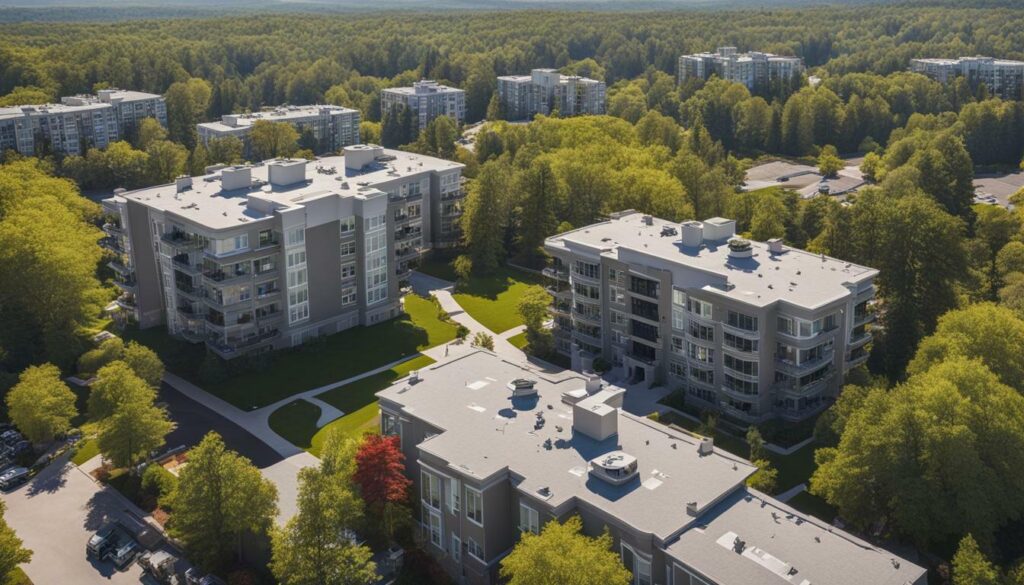

It is important to note that shared HVAC systems in condos must comply with condominium HVAC regulations. This includes regulations related to noise levels, energy efficiency, and proper ventilation.
By working together with your condo association and fellow unit owners, you can help ensure that your shared HVAC system is properly maintained and functioning efficiently.
HVAC Maintenance and Service Contracts
Regular HVAC maintenance is essential to ensure your condo HVAC system operates efficiently and lasts longer. When you sign a service contract with an HVAC contractor, you’re assured of timely maintenance and repair services, as well as access to expert advice on system upgrades, repairs, and replacements.
Service contracts typically cover regular maintenance services such as cleaning or replacing air filters, inspection of electrical connections and wiring, and lubrication of moving parts. Some contracts may also include emergency repair services at a discounted rate, and priority service during peak seasons.
To ensure that your condo HVAC systems continue operating efficiently, it’s critical to choose a reputable HVAC contractor that is familiar with your specific system and has a proven track record in HVAC maintenance. When selecting an HVAC contractor, be sure to check their credentials, license and insurance status, and ask for references.
Regular maintenance and service contracts for your condo HVAC systems will save you money in the long run, as you’ll prevent costly repairs and replacements. It’s important to prioritize condo HVAC maintenance to enjoy optimal indoor comfort and air quality.
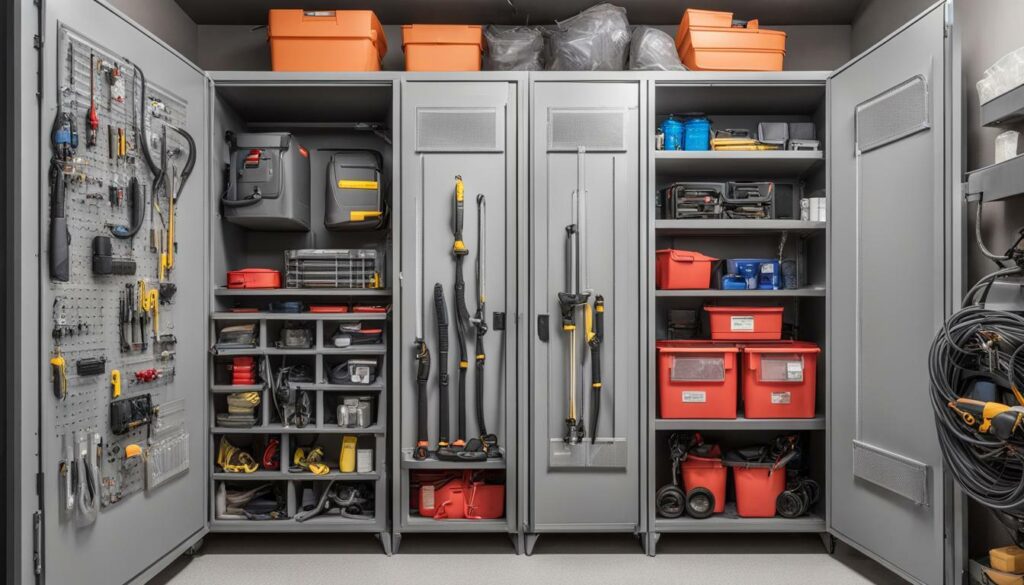

Tip: Schedule annual maintenance inspections for your HVAC system, preferably before peak seasons, and keep records of all services performed. This will help extend the life of your HVAC system and increase its efficiency.
Condo HVAC Insurance Coverage
Insurance coverage for HVAC systems in condos is an important consideration for all condo owners. In the event of a condo HVAC system issue, insurance coverage can help defray the costs of repairs or replacements. It’s important to understand the types of coverage available and the policies provided by the condo association.
Typically, insurance coverage for condo HVAC systems falls under the umbrella of the condo association’s master policy. This policy covers the shared areas of the condo building, including the HVAC systems in these areas. However, individual condo owners may need to obtain their own condo insurance policy to cover the HVAC systems within their units.
When selecting an insurance policy for your condo HVAC system, it’s important to review the coverage carefully. Look for policies that cover not only repairs and replacements but also any damage that may result from a malfunctioning HVAC system. It’s also important to be aware of any deductibles or limitations on coverage.
If you experience an issue with your condo HVAC system, it’s important to contact your insurance provider as soon as possible. They can guide you through the process of filing a claim and help you understand what steps need to be taken to ensure that your HVAC system is repaired or replaced.
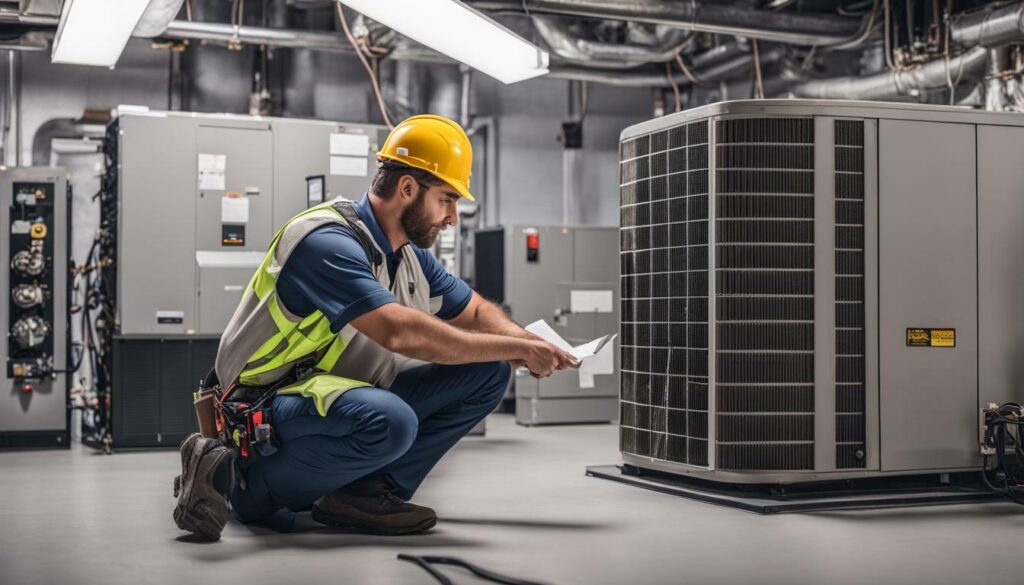

It’s important to note that insurance coverage may not always cover all costs associated with condo HVAC repair or replacement. Depending on the circumstances, you may be responsible for some of the costs yourself. To avoid unexpected expenses, it’s a good idea to have a general understanding of your condo association’s HVAC guidelines and procedures.
By understanding the insurance coverage available for condo HVAC systems, you can ensure that you are adequately protected in the event of a system malfunction. Whether you need to file a claim or not, having insurance coverage can give you peace of mind and protect your investment in your condo HVAC system.
Communication and Conflict Resolution
Effective communication and conflict resolution are essential in managing HVAC responsibilities in condos. You should maintain an open and respectful dialogue with your condo neighbors, HOAs, and maintenance staff to ensure a smooth and efficient process.
When communicating with others about HVAC guidelines and maintenance, it’s important to be clear and concise in your language. Avoid using technical jargon that may be unfamiliar to others and instead focus on explaining the issue in plain language. This can help prevent misunderstandings and ensure everyone is on the same page.
If conflicts arise related to HVAC maintenance or repair, strive to find a mutually beneficial solution. Try to remain calm and respectful, and focus on finding a solution that satisfies everyone’s needs. In some cases, it may be necessary to escalate the issue to the HOA or a mediator to help resolve the conflict.
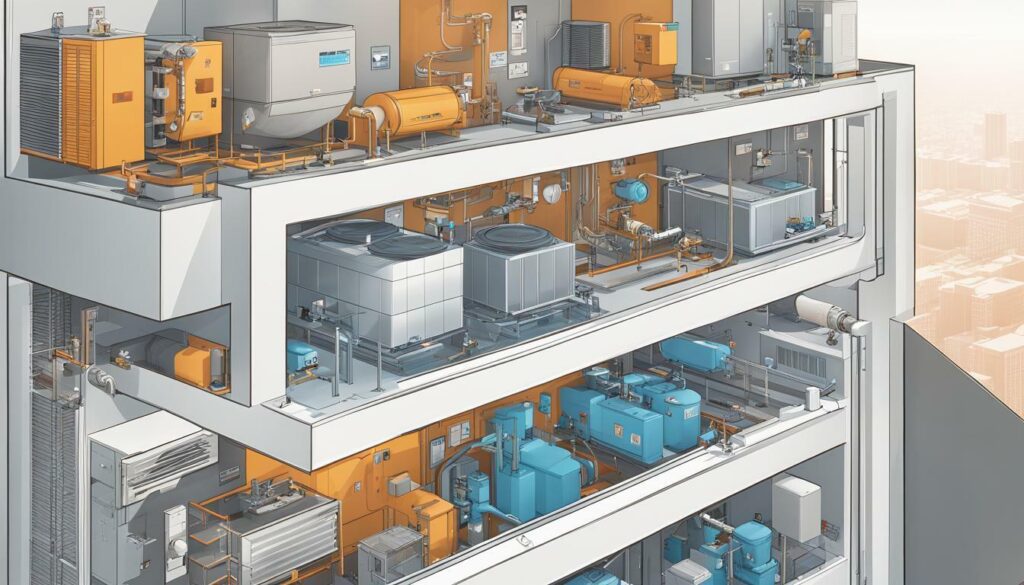

Remember, the goal is to maintain a comfortable and efficient living environment for all condo residents. By communicating effectively and resolving conflicts in a productive manner, you can help ensure that your condo HVAC system runs smoothly and efficiently.
Additional Considerations for Condo HVAC
When it comes to condo HVAC responsibilities, there are several additional considerations to keep in mind. By following these guidelines, you can improve the efficiency and comfort of your living space while also ensuring the longevity of your HVAC system.
Energy Efficiency
Energy efficiency is a critical consideration for any condo HVAC system. By choosing high-efficiency components and taking steps to reduce energy waste, you can save money on your utility bills while also reducing your carbon footprint. Some key strategies for improving condo HVAC efficiency include:
- Choosing Energy Star-rated HVAC components
- Sealing air leaks in your condo to reduce energy waste
- Investing in a programmable smart thermostat to optimize temperature control
- Cleaning or replacing air filters regularly to improve airflow
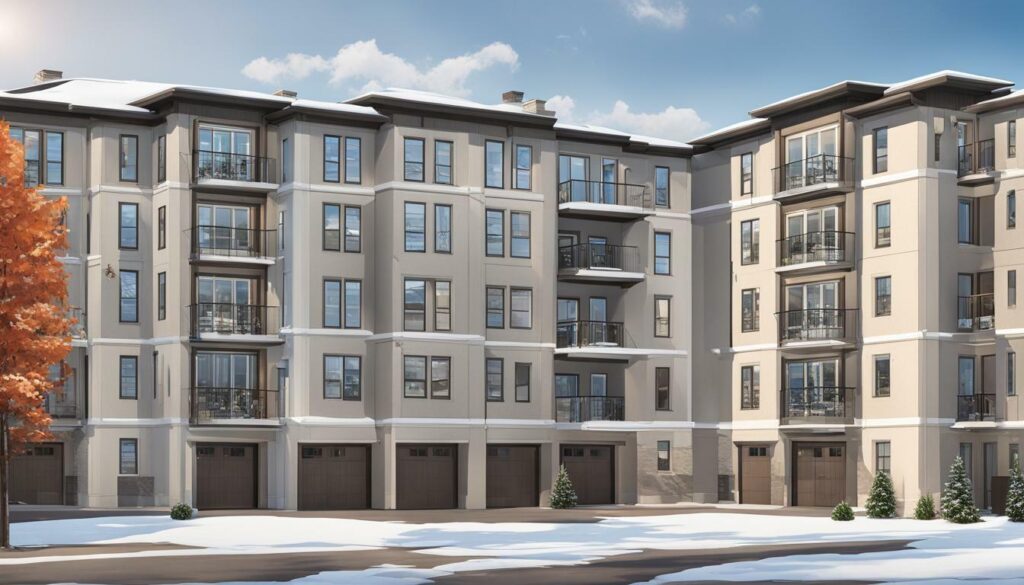

Regular HVAC Inspections
Regular inspections are an important part of maintaining your condo’s HVAC system. By having your system inspected on a routine basis, you can identify potential issues before they become major problems, saving you time and money in the long run. Some key components of a comprehensive HVAC inspection include:
- Inspecting and cleaning all system components, including ductwork, air filters, and coils
- Tightening electrical connections to prevent overheating and other safety hazards
- Lubricating moving parts to reduce wear and tear
- Checking refrigerant levels and ensuring efficient system operation
Creating a Comfortable and Healthy Living Environment
Your condo HVAC system plays a crucial role in creating a comfortable and healthy living environment. By taking steps to optimize your system and maintain optimal indoor air quality, you can enjoy a more comfortable and healthy living space. Some key strategies for improving indoor air quality in your condo include:
- Using air purifiers or humidifiers to reduce allergens and improve air quality
- Regularly cleaning and vacuuming your condo to remove dust, pet dander, and other pollutants
- Optimizing humidity levels to prevent dry skin and respiratory issues
- Ensuring proper ventilation in your condo to improve airflow and reduce humidity levels
By following these additional considerations for condo HVAC, you can ensure that your system operates smoothly, efficiently, and comfortably, and establish a healthy living environment in your condo.
Conclusion
Managing HVAC responsibilities in a condo requires understanding of ownership, shared areas, and HOA regulations. As a unit owner, it’s important to be aware of your individual responsibilities for maintaining and repairing your HVAC system. Regular maintenance and service contracts are crucial for the longevity of your system, and understanding insurance coverage can help mitigate costly repairs.
For shared HVAC systems, communication and conflict resolution play a key role in managing responsibilities and ensuring efficiency. It’s important to work with your HOA and maintenance staff to address issues and maintain a comfortable living environment.
Additional considerations, such as energy efficiency measures and regular inspections, can also contribute to the overall longevity and effectiveness of your HVAC system. By taking a proactive approach to HVAC responsibilities, you can ensure a comfortable and efficient living space for you and your neighbors.
FAQ
Q: Who is responsible for HVAC in a condo?
A: The responsibility for HVAC systems in a condo can vary depending on the specific circumstances and governing documents. In general, the condo homeowner association (HOA) is responsible for maintaining and repairing HVAC systems in shared areas, while individual condo owners are typically responsible for HVAC systems within their own units.
Q: What are shared areas in a condo building?
A: Shared areas in a condo building refer to spaces that are collectively owned and used by all residents, such as hallways, lobbies, and common rooms. HVAC systems serving these shared areas are usually the responsibility of the condo HOA.
Q: What is the role of Condo Homeowner Associations (HOAs) in managing HVAC systems?
A: Condo HOAs are responsible for overseeing the maintenance and repairs of HVAC systems in shared areas. They ensure that these systems are functioning properly and arrange for necessary repairs. HOAs also play a role in managing HVAC issues in individual condo units, often coordinating with residents and contractors.
Q: What HVAC responsibilities do individual condo owners have?
A: Individual condo owners are generally responsible for maintaining and repairing the HVAC systems within their own units. This includes tasks such as changing air filters, scheduling regular maintenance, and addressing any issues or malfunctions that arise. It is important for condo owners to stay proactive in HVAC maintenance to ensure comfort and efficiency.
Q: How are shared HVAC systems managed in condos?
A: Some condo buildings have central HVAC systems that serve multiple units. The responsibility for maintaining and repairing these shared systems is typically assigned to the condo HOA. They ensure that the systems are properly maintained and address any issues or repairs needed.
Q: Why is HVAC maintenance important in condos?
A: HVAC maintenance is crucial in condos to ensure optimal performance, energy efficiency, and comfort. Regular maintenance helps prevent costly repairs, improves indoor air quality, and prolongs the lifespan of HVAC systems. It is recommended to have a service contract with a reliable HVAC contractor for professional maintenance.
Q: What insurance coverage is available for condo HVAC systems?
A: Insurance coverage for condo HVAC systems can vary. It is important for condo owners to understand the insurance policies provided by the condo association and review their individual coverage. Additional coverage may be necessary to ensure adequate protection for HVAC repairs or replacements.
Q: How can communication and conflict resolution be addressed in condo HVAC responsibilities?
A: Effective communication between condo owners, HOAs, and maintenance staff is essential in managing HVAC responsibilities. Open dialogue can help address concerns, coordinate maintenance efforts, and resolve conflicts. It is important to establish clear channels of communication and work together to ensure a smooth HVAC management process.
Q: Are there any additional considerations for condo HVAC?
A: Yes, there are some additional considerations for condo HVAC systems. Implementing energy efficiency measures, such as using programmable thermostats and sealing air leaks, can help reduce energy consumption and costs. Regular HVAC inspections are also important to identify and address any potential issues before they become major problems.

